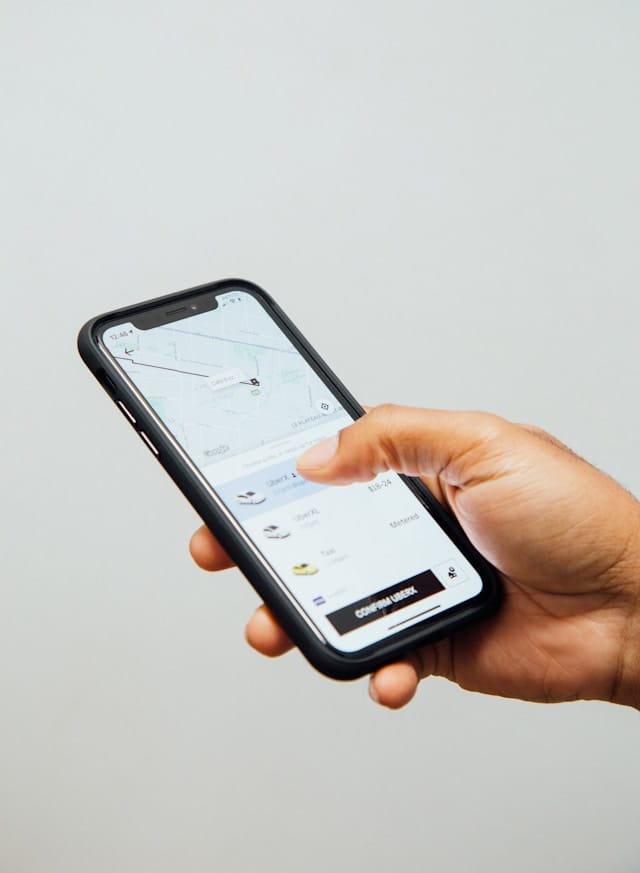BD Insider: Egypt finally plans to join the 5G party
In this newsletter, we look at; Egypt's set to launch its first 5G network this year, Kenyan ride-hailing drivers strike for fair pay and pricing power, and Ghana cracks down on data breaches with licenses to 51 cybersecurity providers.

Egypt Set to Launch First 5G Network This Year

Months after securing a 15-year license worth $150 million to operate 5G services from Egypt’s National Telecommunications Regulatory Authority, Telecom Egypt, in partnership with Nokia, will bring 5G technology to Egypt for the first time. This collaboration will see 5G-ready services enter key cities like Cairo, Giza, Alexandria, Aswan, and Luxor.
Nokia will provide 5G radio access network (RAN) equipment from its extensive AirScale portfolio, comprising Massive MIMO radios, baseband, remote radio heads, and services designed to significantly enhance data speeds, network performance, and overall capacity.
The introduction of 5G services aligns with Egypt's Vision 2030 objectives, which aim to position Egypt as a regional ICT leader.
Context: Telecom Egypt has been at the forefront of digital transformation efforts in Egypt. Earlier this month, it partnered with Hungarian IT solutions provider 4iG Group to build a modern fibre network that will give six million households access to a high-speed network.
In January, the telco also announced its partnership with Zain Omantel International Company to develop new digital infrastructure and establish a data transfer route connecting Europe, the Mediterranean Sea, and the Arabian Gulf.
As far back as 2019, Telecom Egypt deployed a 5G cloud core from Ericsson. In February this year, the two hailed a successful 5G trial at Egypt's New Administrative Capital. Also in February, Telecom Egypt tapped up Huawei for 5G wireless, core and transport network equipment.
It remains unclear why Egypt has delayed deploying 5G, despite all four operators—Orange, Vodafone, Etisalat, and Telecom Egypt—already holding spectrum suitable for 5G services.
As things stand, 5G services have been launched in South Africa, Madagascar, Seychelles, Togo, Mauritius, Zimbabwe, Botswana, Tanzania, Nigeria, Kenya, Zambia, Mozambique, Gambia, Uganda and Ethiopia.
Kenyan Ride-Hailing Drivers Strike for Fair Pay and Pricing Power

Kenyan ride-hailing drivers are halting business. They've embarked on a five-day strike demanding better pay, a say in pricing decisions, and the removal of value-added taxes.
Drivers argue that these companies continue to operate with a business model that leaves them bearing the brunt of operational costs like insurance and parking fees while reaping a smaller share of the profits.
Another key demand centres around pricing power. The drivers demand that the minimum ride fare be fixed at 300 Kenyan shillings (Ksh). They believe they deserve a say in setting fares, given that these decisions directly impact their earnings.
Context: This isn't the first rodeo for Kenyan ride-hailing drivers. In 2019, similar strikes led to a government-mandated 18% commission cap for these companies. However, drivers argue that enforcement of this cap and other regulations has been lacking. Bolt’s issues with its drivers also extend to South Africa. In June, Bolt reportedly blocked over 6,000 drivers in the country in the last six months due to misconduct.
Both Uber and Bolt have acknowledged the strike, but their statements seem to sidestep the core issues. They emphasise respect for peaceful demonstrations and a commitment to driver partnerships but remain vague on pricing and commission concerns.
This strike disrupts Kenya's ride-hailing industry, potentially leading to surge pricing for users who can still find rides. Complaints of exploitation from ride-hailing drivers persist as a significant challenge in the mobility sector, even as it surpassed Fintech in funding for the first half of 2024.
Ghana Cracks Down on Data Breaches with Licenses to 51 Cybersecurity Provider

Ghana has become the first African country and the second worldwide after Singapore to have a comprehensive cybersecurity regulatory framework. The Ghana Cybersecurity Authority (CSA) recently granted licenses and accreditation to 51 cybersecurity industry players to combat the nationwide data breach surge.
The 51 providers issued these licenses include Cybersecurity Service Providers; Virtual Infosec Africa, e-Crime Bureau, and CWG Ghana; Cybersecurity Establishments such as Absa Bank, Access Bank, Fidelity Bank, and Guarantee Trust Bank; and Cybersecurity Professionals such as Kester Quist-Aphetsi, Tornyelli Tetteh, Jeannette Quayson, Olivia Jones, and Ebenezer N. Nakoja.
The licenses issued have varying renewal periods. Professional licenses require annual renewal, while service provider and establishment licenses are valid for two years. The CSA has emphasized strict enforcement of cybersecurity regulations, with potential consequences like fines and even criminal charges for non-compliance
Context: Data breaches are a pressing concern in Ghana. A recent report by Surf Shark ranked the nation ninth among African countries with the most data breaches in 2024. The first quarter of 2024 alone witnessed a troubling 997% increase in breaches compared to the previous quarter.
In September 2023, Albert Antwi-Boasiako, Director-General of the CSA disclosed that cyber fraud incidents in the country resulted in substantial financial losses totaling $4.33 million.
The CSA plans to continue issuing licenses to qualified cybersecurity professionals and companies. They focus on creating a secure digital environment in Ghana by enforcing regulations and holding violators accountable.
Cybersecurity remains a major concern in Africa, with Check Point reporting an average of 2,373 attacks per organization per week in the first quarter of 2024. More African countries are expected to follow Ghana's lead and take bolder steps to combat cybercrime.
By the Numbers
285.4 million
The number of units of smartphones shipped globally in the second quarter of 2024. Samsung secured the top position with an 18.9% share of the shipments, while Apple and Xiaomi followed with 15.8% and 14.8%, respectively. The top 3 retained their respective positions from Q1 2024.
TECH TRIVIA
Which smartphone brand is currently the most popular in Africa?
Hint: The brand has a foldable smartphone.






